- From Faith Current: “The Sacred Ordinary: St. Peter’s Church Hall” - May 1, 2023
- A brief (?) hiatus - April 22, 2023
- Something Happened - March 6, 2023
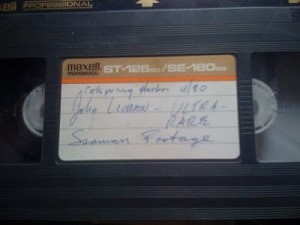
One of the more intriguing items at auction.
Roger over at WogBlog has an excellent head’s-up on a massive collection of Beatle personal items/memorabilia from Beatle author Geoffrey Giuliano and one-time Beatle designers The Fool. (A lot of this stuff—which is really mind-blowing—seems to have originated with Derek Taylor, or directly from George and John.)
I don’t know what I think about memorabilia. On the one hand, I definitely feel the attraction of it—what Beatles fan wouldn’t want a letter from George to the other Beatles asking them not to break up the group? On the other hand, memorabilia also gives off a very weird vibe. I’ll explain what I mean in a moment, after this snip from the auction’s Facebook page. Read it and you’ll see why I was moved to post about this collection.
John and Yoko’s Sexual History?!
John Lennon Yoko Ono Personal Home Recording Concerning Their Sex Lives Before And After They Began Their Relationship (A Sexual History Of Both Of Them)
An unheard original tape of John Lennon speaking to his wife amend at times is disbrued with her answers [garbled, but you get it—MG]. A HISTORY changing tape. Originally the property of John Lennon. Lennon gave a copy to Derek Taylor at Tittenhurst Park telling Taylor, “Keep it we might need it later if I ever decide to break up with Yoko.” Original cassette and CD listening copy. With history and COA from Geoffrey Giuliano. Formerly the property of John Lennon. From the collection of Derek Taylor.
Wow. I kinda can’t wait to find out what’s on that, and kinda really absolutely DON’T WANT TO KNOW. Can you imagine John and Yoko in the era of cell cameras and sexting? Running TMZ would be even easier than it is now. Channel 756 on DirecTV could be the “John and Yoko’s Sexual History channel.”
As roughly one billion people have noted before me, memorabilia is essentially a religious relic. The modern replacement of religion with celebrity is also a common thought—John Lennon might’ve caught hell for comparing the popularity of a pop combo to the Prince of Peace, but that was before fifty more years of TV. Like it or don’t, among certain generations Lennon could wear the nickname “Prince of Peace” as easily as the late J.C. (At least until this tape makes the rounds.)
“Everyone wants a piece of you”
I love me some Beatles, but there’s a thing that keeps me from getting too nutty about Beatles memorabilia, and it’s not just the lack of any spare millions. It’s the sense of a relationship, however tenuous and unspoken, between desiring something once owned by a Beatle, and wanting to own a piece of them as people. As Lennon said, “The postman wants an autograph. The cab driver wants a picture. The waitress wants a handshake. Everyone wants a piece of you.” For those Beatles that are dead, this can’t hurt them anymore—but while they were alive, I think it alienated them terribly, and was so crazy for so long they became fed up. It was precisely the kind of pressure that broke up the group; and precisely the kind of thinking that got George and John attacked by fans. Certainly it encouraged misperceptions in their own minds that made their lives much more difficult. Put it this way: lot of people in 1969 got high on acid and announced they were Jesus. When John Lennon did it, he had reasons besides the lysergic. What The Beatles were then (and what they’ve come to mean since), is as close to religion as you can get without founding churches. Lennon knew that; he felt it; he lived it.
Apart from the religious aspect, there’s a simple commercial truth at work, too. When John Lennon wrote his name on something, it became worth more money. That value had to come from somewhere, and Lennon suspected that it was drawn from him. There’s a “quote” in Dakota Days, I believe, where Lennon speaks of the toll thousands of autographs and millions of photos must’ve taken upon his elan vital. But I don’t think you have to get all woo-woo to explain this. Whether or not it’s a “transfer of energy” from the star to the fan, the creation of monetary value is real, and in a world where so much comes down to those little green pieces of paper, it’s inevitable that people who can create money by associating with an object will get no peace. Can you imagine the pilferage that John, Paul, George and Ringo must’ve suffered over the years? I suspect that kind of thing is part of the huge downside of Beatledom, which is so hard for the rest of us to see, much less understand.
The Gerber Plan
If you ask me, the British government oughta give the four estates a massive tax writeoff and put everything—master tapes, personal papers, and historically important memorabilia—into a museum. Not only for its protection, but to preserve the integrity of the historical record. I’ve been reading and thinking about The Beatles for 36 years (I’m 40) and never have I come across that Harrison memo, which changes my picture of the breakup significantly. Now that they’re gone, God knows how much our perceptions of John and George have been shaped by what’s been revealed and what hasn’t, and if The Beatles are authentic historical figures (which they obviously are) accuracy is paramount. (There could be a whole wing for John and Yoko’s sexual history! jk)
Meanwhile: what do I hear for George’s genuwine prayer beads? Do I hear thirty? Thirty-five! Forty! Forty-five…

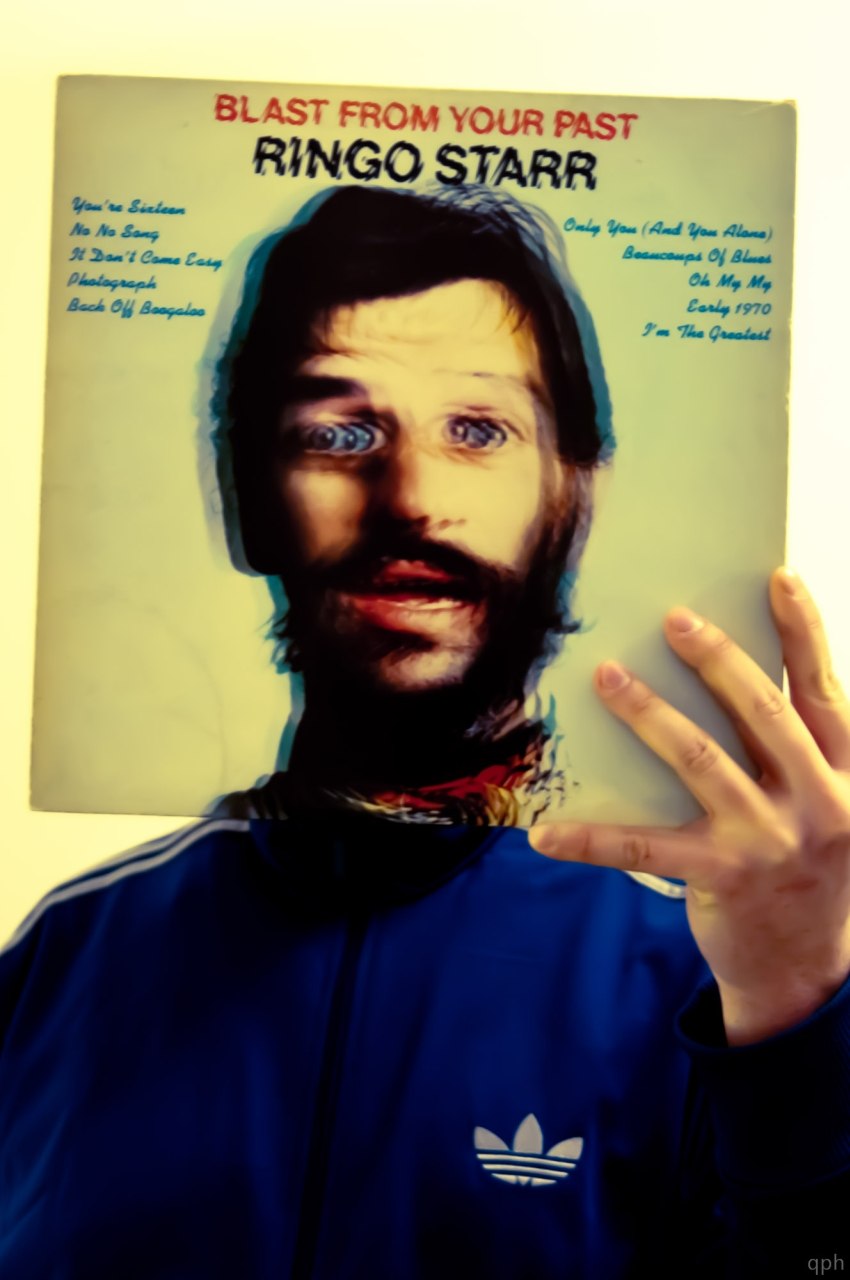

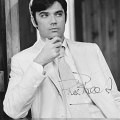

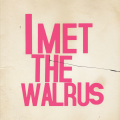
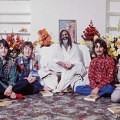
Interesting – I had never considered collecting memorabilia to be our modern day version of holy relics. I would be amazed if George HAD written a note asking the three others not to disband the group – I always thought he was the Beatle most keen to escape Beatledom, and least fearing of life beyond the group.
Very interesting post. I also think there’s a weird vibe to collecting the personal objects of famous people.
I see a distinction between buying and collecting things that the originator intended for sale or public release and things that he or she did not. Things that were always meant to be public seem like fair game. Things that were at some point intended to be public but weren’t made public by the originator are a bit iffier, perhaps (say, an early acetate of a song, or a bootleg recording of an unreleased song). If a famous person or his/her heirs chose to sell memorabilia, at least it’s gone through a kind of screening process and was selected to be offered for sale.
Collecting things that were definitely not intended to be made public by the originator seems to me like trespassing. Buying something personal that the originator entrusted to a friend (like this sex tape, it sounds like), especially seems like an intrusion into privacy. At least to me.
What a great thought-provoking post, had seen the news of the auction on WogBlog’s site the other day, so really interesting to see this commentary on it, and a lot that I agree with.
I love the Beatles, sometimes more than life itself it seems, but there’s a fine line between loving something and loving it so much that you want to possess it, or get a piece of it, which goes for many relationships in life.
Yes, the contents of some of the items up for sale may give us beatle students even more insight into them as artists, but owning such a piece isn’t going to bring us closer to them as people – John and George are gone, never to return, they are ex-beatles in the true (and pythonic) sense of the word.
Shouldn’t some of these personal items be returned, sold, whatever, to the original owners or remaining loved ones? Or should these pieces in fact be made available in the public domain, eg a museum as Michael suggests, for our enlightenment and the preservation of generations to come.
A sale like raises so many questions, and I don’t know what the answers are either. With regard to the ‘sex tape’ on sale, it is described on the facebook page as being ‘history changing’. If that’s the case why hasn’t Giuliano written about this before, as he is a somewhat prolific beatles biographer.
And the George memo, I dunno, but something just doesn’t ring true there. I’m not saying it’s forged or anything, but are we misinterpreting it somehow (there is only a description but no photo of the memo on the facebook page)? Just seems so un-George, especially for that period during the beatles’ career. I don’t know that it should radically change what we know about George’s feelings towards the band at that time anyway, I mean, he said many times how he lost enthusiasm for being in the band post-66 and his discovery of all things indian. Maybe he was just having a sentimental day that day when he wrote the memo, or had a sherry too many, but I think the general gist of his feelings at that time were that he was wanting out the band as much as any of the others. I don’t think the memo proves a 180 degree turn in his feelings. And not knowing the context of the memo, i’m reticent to hang any great conclusions on it. Just my opinion though.
Sorry for the ramble – but just to say again, great post! Really got me thinking about the whole memorabilia vs historical artefact issue. Can’t wait to hear what other folk have to say about it too. And who’s gonnae end up buying those items??!
shirley
Thanks for posting, Mike….
Sure thing, Ed! How’s the little ‘un?
BTW, I just shot an email to Allan Kozinn to get his opinion on this sale. I quite agree that George’s view as stated in the memo is surprising; but it’s always worth noting that our perceptions of these guys are partial, full of received wisdom, and very managed besides. So even though the “Memo George” doesn’t jibe with “Wah Wah George,” the real person could easily accommodate both opinions. Different days, different moods.
A typically perspicacious analysis, Mike. You are the Dullblog’s resident pragmatic idealist. And is there any info on that George note–when written, what context?
Hearing that from you, Devin, is like having the Pope call me “a good Catholic.” Many thanks.
All I know about the memo is what I read on WogBlog/the auction’s Facebook page. It’s apparently on Apple stationary, so it’s gotta be at least post-May ’68.
The “I Me Mine” session was 3 January 1970, so at that point Harrison was still somewhat interested in Beatlehood; and my understanding of that period is that McCartney, Harrison and Starr were all waiting to see if Lennon was serious, or just going through one of his phases. So my guess is that the memo was between Lennon’s private announcement in September 1969 and Paul’s public announcement in April 1970. But that’s nothing you don’t know already.
I’d love to know what Allan K. or Lewisohn has to say about it.